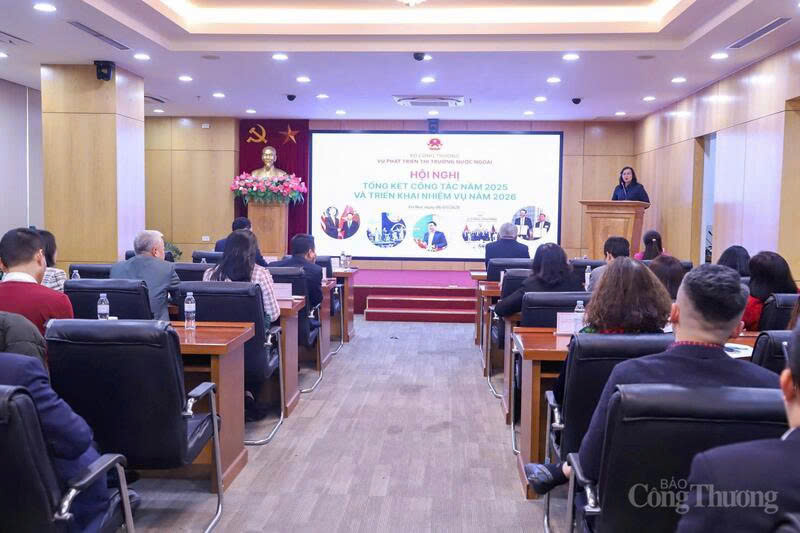
Stronger inter-agency coordination needed to drive export market growth
19:05 | 23/03/2025 15:39 | 07/01/2026News and Events
At its 10th session, the National Assembly is reviewing and expected to pass the draft E-Commerce Law. Covering both domestic and cross-border trade, the draft has been developed based on practical experience, international reference, and broad consultations with stakeholders, reflecting strong efforts by the drafting agency to remove long-standing obstacles to Vietnam’s digital commerce development.
Efforts behind a challenging law
During the group discussion on 3 November, National Assembly deputy Le Hoang Anh of Gia Lai province, Standing Member of the National Assembly’s Committee on Economic and Financial Affairs, commended the Ministry of Industry and Trade for its thorough preparation of the draft law.
He noted that the ministry had organized multiple workshops and consultations with experts, researchers, and affected stakeholders. “We had the opportunity to engage, listen, and gather diverse feedback,” he said.
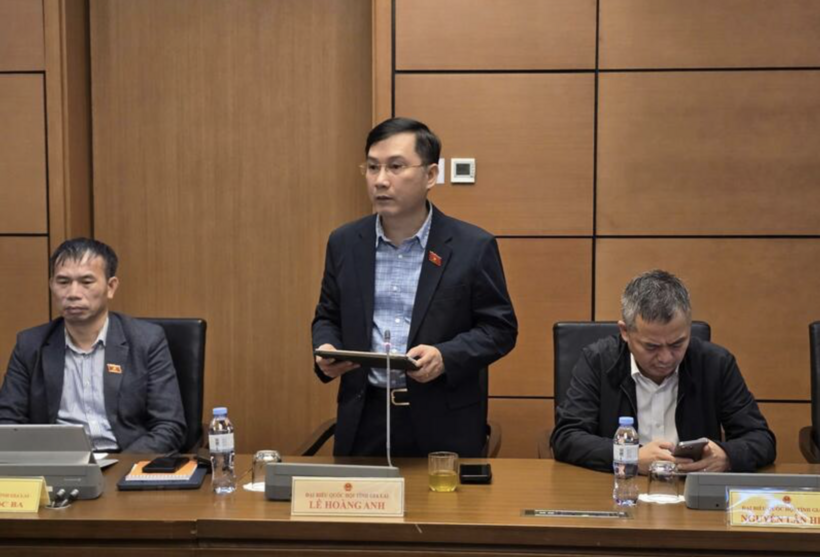
Deputy Le Hoang Anh, National Assembly delegation of Gia Lai province.
According to Le Hoang Anh, the law is essential to regulate commercial activities in the digital environment, protect consumers, prevent tax losses, and build a transparent legal foundation for the growth of the digital economy, a sector playing an increasingly important role in the national economy.
Speaking to reporters on the sidelines, deputy Nguyen Thanh Cong of Ninh Binh province, also a Standing Member of the Committee on Economic and Financial Affairs, said the draft law is designed to complete the legal framework for e-commerce and translate the Party’s orientations on promoting the digital economy, digital society, and new technology-driven business models into concrete legislation.
He added that the law aims to strengthen the domestic market, stimulate consumption, diversify distribution channels, and promote digital platforms, in line with major Party documents such as Resolution No.68-NQ/TW on private sector development and Resolution No.57-NQ/TW on breakthroughs in science, technology, innovation, and digital transformation.
The draft law seeks to ensure consistency, transparency, and feasibility amid the fast-paced and complex development of e-commerce. It regulates relations among participants, defines shared responsibilities, and addresses issues such as counterfeit goods, tax management, intellectual property rights, and environmental protection, while promoting sustainable “green” e-commerce.
“The bill will have a broad and lasting impact on people and businesses”, deputy Cong said. “The drafting agency has made great efforts, drawing on practical experience and selectively learning from international legislative models.”
E-Commerce Law: Difficult but necessary
A key issue raised by deputies is public trust in online transactions. Only with trust can e-commerce develop in a stable and healthy way.
The draft law clarifies the responsibilities of platform operators and their shared liability in e-commerce transactions, including accountability in cases where consumers suffer losses. “Defining responsibilities clearly among all parties is crucial to protect consumers,” deputy Cong stressed.
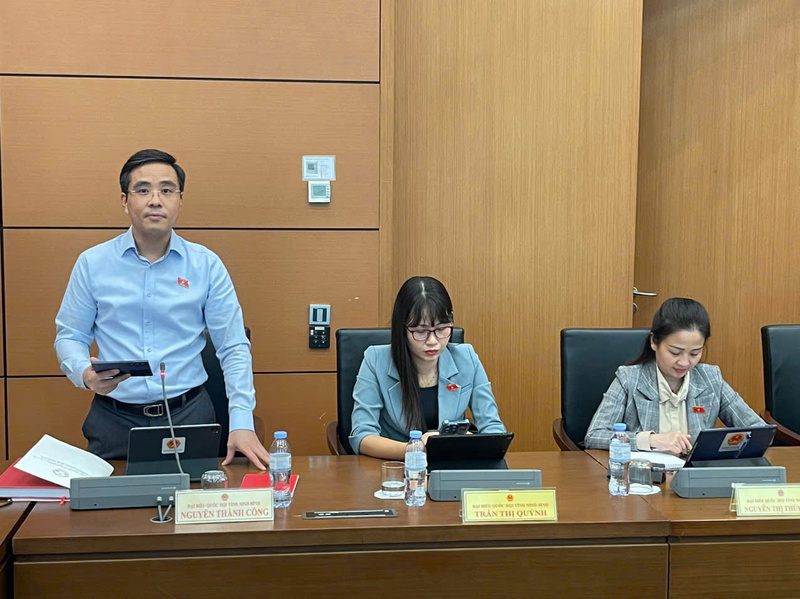
Deputy Nguyen Thanh Cong at the group discussion session on October 23. Photo: ĐBND
On cross-border e-commerce, he said the law should clearly set out obligations for foreign entities, including platform operators without a presence in Vietnam, foreign investors in the e-commerce sector, and overseas sellers doing business in Vietnam.
“The goal is to create an attractive investment environment while ensuring consumer protection, effective state management, tax compliance, product quality and origin control, and safeguarding domestic production in line with international commitments and principles of fair competition,” he said.
To meet these goals, the law must be accompanied by coordinated policies on taxation, customs, and foreign trade management.

A livestream event promoting tea products by ethnic minority farmers in Quang Binh commune, Tuyen Quang province. Photo: Thu Huong
Deputy Cong noted that in the coming period, the Committee on Economic and Financial Affairs will continue to work with the drafting agency and relevant ministries to review and finalize the bill, ensuring it is comprehensive, practical, and transparent, with clear responsibilities for all stakeholders, and strong mechanisms for quality control and product traceability.
Together with related laws, the E-Commerce Law is expected to create a sound legal framework that protects the legitimate rights of consumers and businesses, ensures fairness and equality, and fosters an open, competitive business environment, enabling innovation and sustainable development in line with global e-commerce trends.
On January 15, 2025, the Ministry of Industry and Trade sent an official document to ministries, government agencies, socio-political organizations, economic entities, individuals, and relevant industry associations to solicit policy feedback. On June 2, 2025, the Ministry established the Drafting Committee for the E-Commerce Law under Decision No.1553/QD-BCT. Subsequently, on June 17, 2025, the Government issued Resolution No.176/NQ-CP, followed by Submission No. 536/TTr-CP dated June 19, 2025, sent to the National Assembly Standing Committee, proposing the inclusion of the E-Commerce Law in the 2025 legislative agenda of the National Assembly.
During the drafting process, the Ministry of Industry and Trade organized various forms of public consultation: one policy consultation conference, three consultation workshops, two rounds of written feedback, and two rounds of public posting for comments on the Government’s Portal and the National Legal Information Database. The Drafting Committee itself held three internal meetings to discuss and refine the draft law.

19:05 | 23/03/2025 15:39 | 07/01/2026News and Events
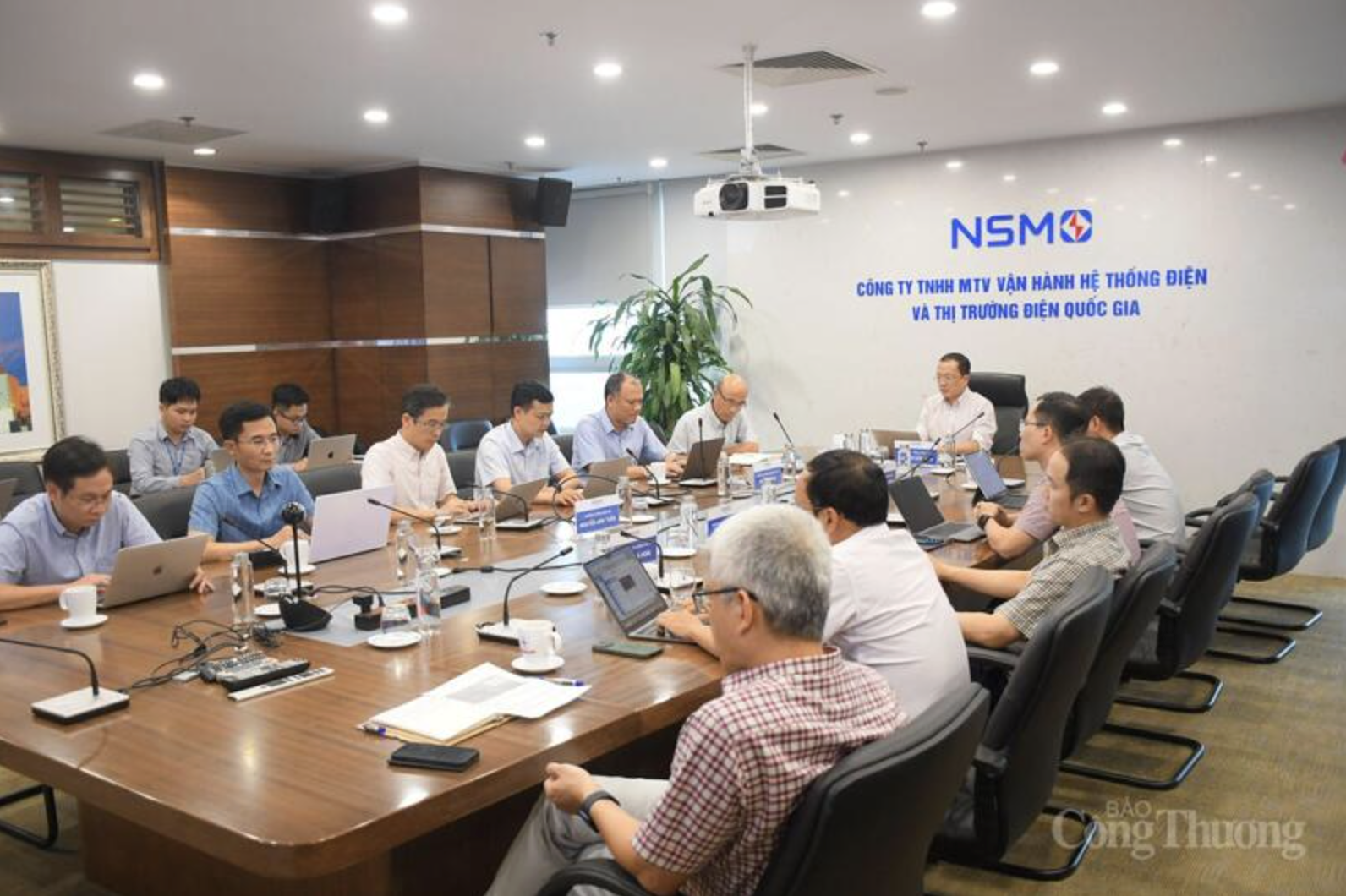
19:05 | 23/03/2025 15:38 | 07/01/2026Industry

19:05 | 23/03/2025 15:38 | 07/01/2026Industry

19:05 | 23/03/2025 15:37 | 07/01/2026Industry
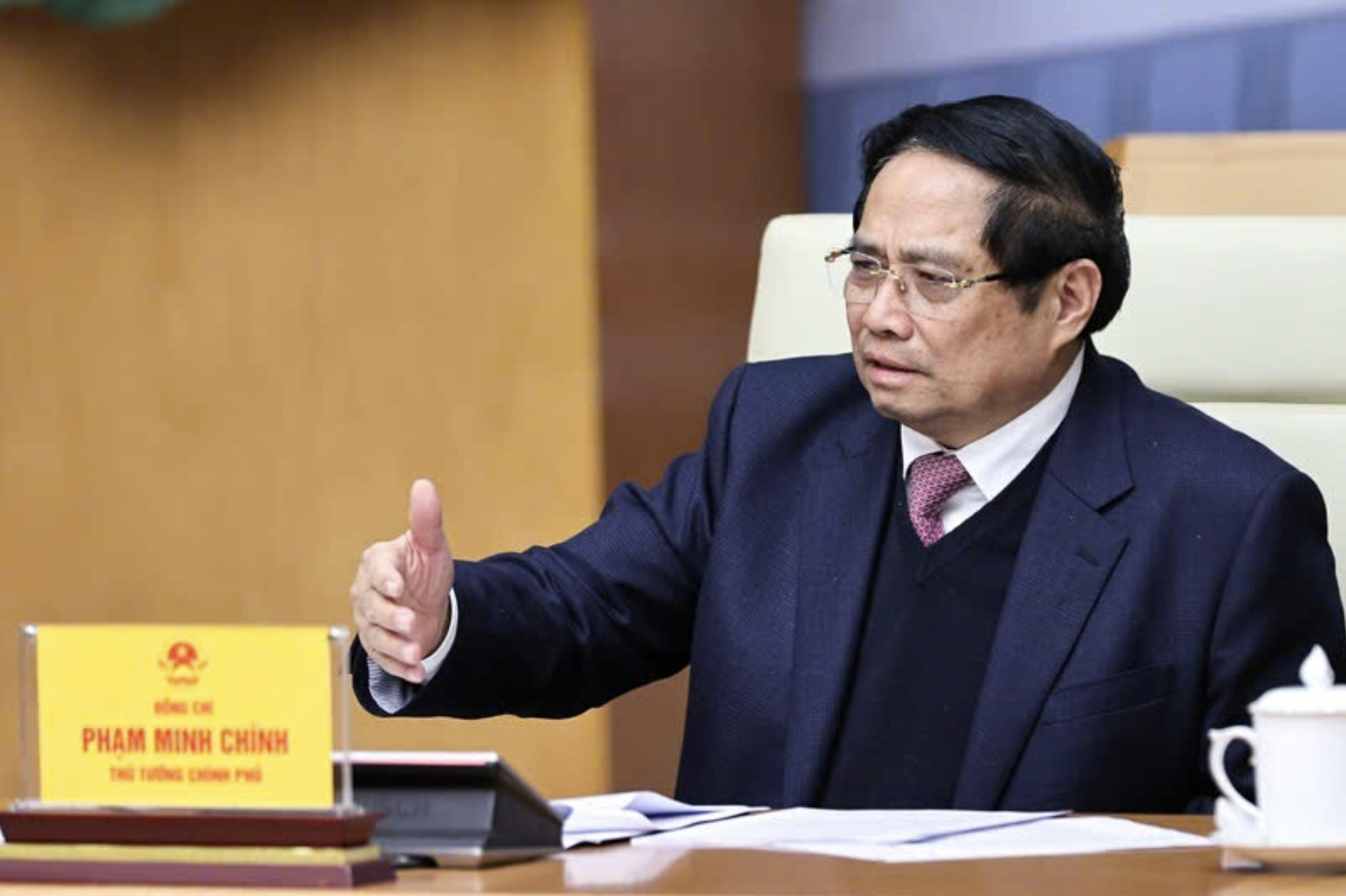
19:05 | 23/03/2025 15:36 | 07/01/2026News and Events